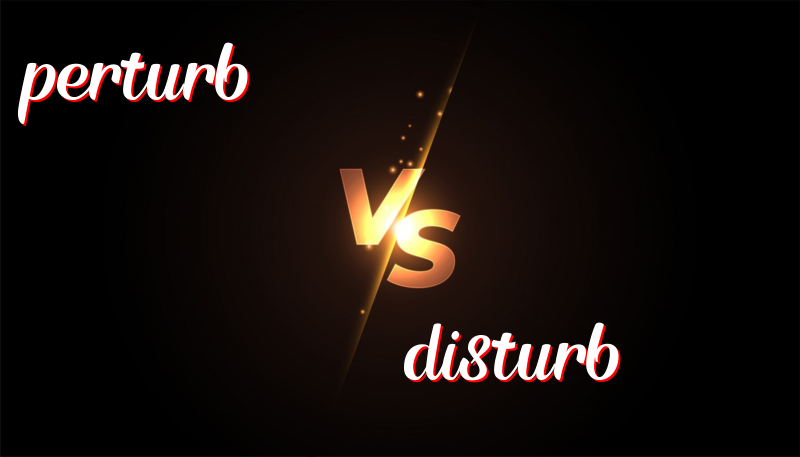擾亂(perturb)與干擾(disturb):詞語區別解析
July 18, 2024
釋義:擾亂(perturb)與干擾(disturb)的區別
擾亂(perturb)和干擾(disturb)這兩個詞在英文中都有打擾、干擾的意思,但在用法和情感色彩上有一些細微的區別。本文將詳細介紹這兩個詞的歷史、使用方法,以及如何記住它們的區別。
歷史與詞源
Perturb: 這個詞來自拉丁語 perturbare,意指“使混亂”、“徹底打亂”。這個詞在16世紀被引入英文,現代多用於描述某種情緒或心理狀態的擾亂。
Disturb: 這個詞來自拉丁語 disturbare,意思是“分散”和“打亂”。Disturb 在14世紀被引入英文,通常用於指實際行為上的干擾。
使用方法
Perturb 的用法
- 大多用於描述某種情緒或精神的擾亂。
- 通常有較強的情感色彩,帶有不安、焦慮等感情。
例句:
- The news of the accident perturbed her deeply.
- His sudden resignation perturbed the entire team.
- She was perturbed by his odd behavior.
- The scientist was perturbed by the unexpected results.
- John’s pale face perturbed his mother.
Disturb 的用法
- 多用於具體行動上的干擾。
- 通常指對某件事情或某人活動的打斷。
例句:
- Please do not disturb me while I am working.
- The loud noise disturbed the meeting.
- She was disturbed by the crowded room.
- The unexpected phone call disturbed his thoughts.
- We should not disturb the wildlife in the park.
記住區別的方法
Perturb: 記住“P”代表心理(psychological),perturb 更常用於情緒或精神上的擾亂。
Disturb: 記住“D”代表動作(disturbance),disturb 更常用於具體行動上的干擾。
總結
Perturb 和 disturb 都有干擾、擾亂的意思,但 perturb 更強調心理或情感上的干擾(通常帶有不安或焦慮的感情),而 disturb 更側重於具體行為上的干擾(如打斷某個活動)。了解這些微妙的區別,有助於在使用這兩個詞時選擇更準確的表達。希望這些信息能幫助你更好地理解和使用這兩個詞。

Leave a Reply
You must be logged in to post a comment.